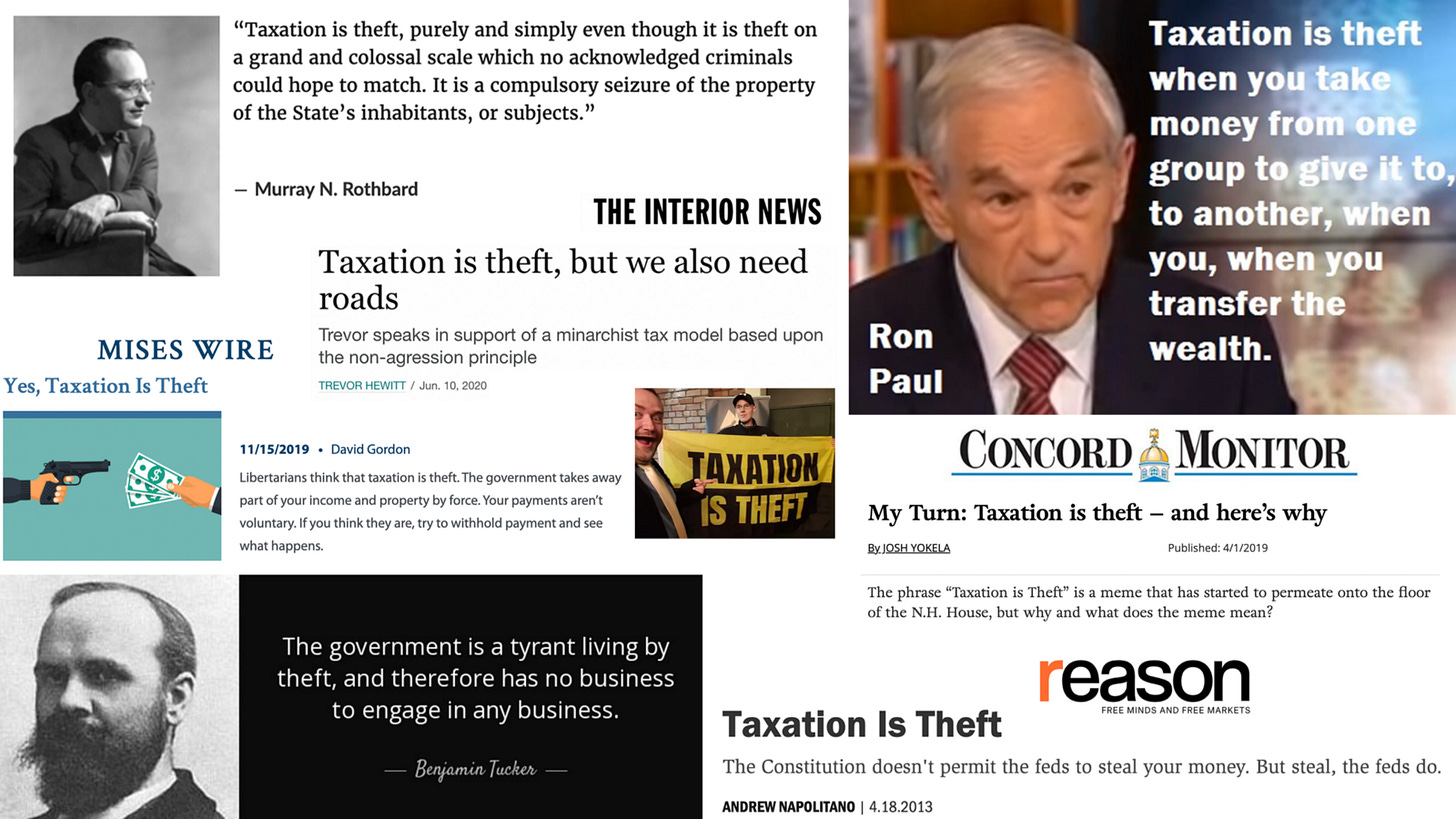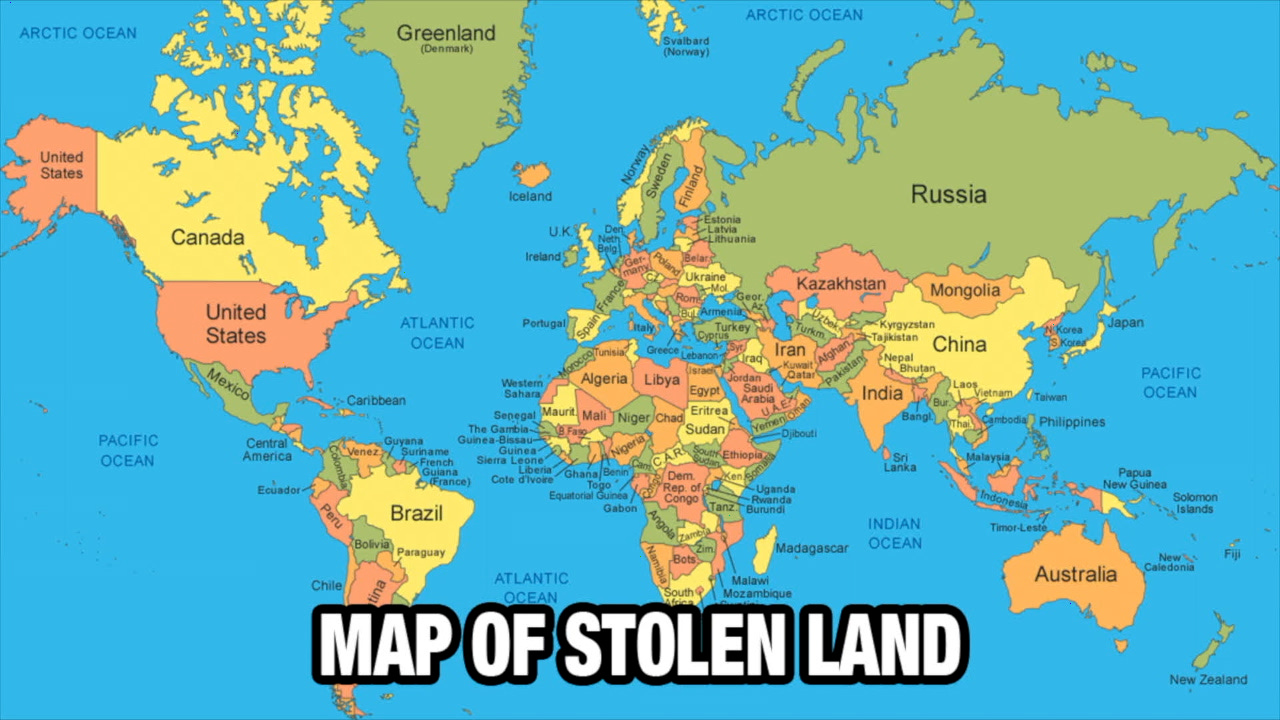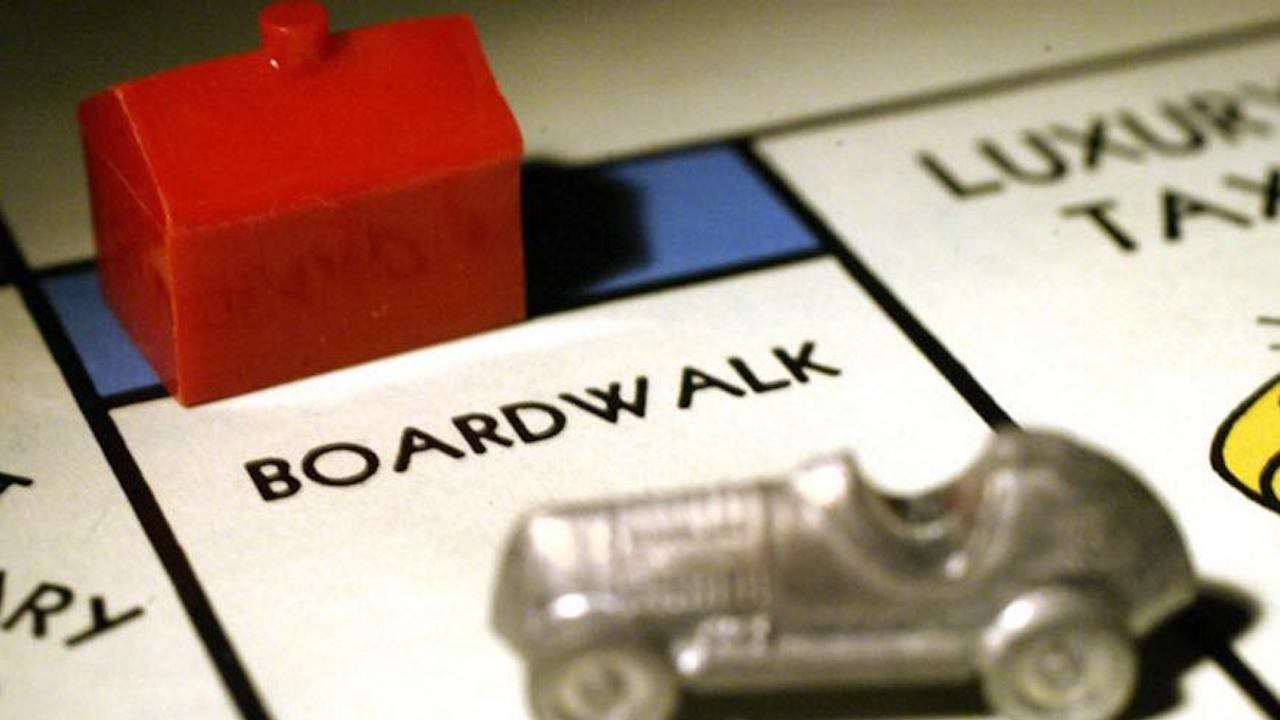Is Taxation Theft? The Thin Line Between Compulsion and Consent
Taxation can feel like theft when the government takes 50% of your income and gives you back little more than paperwork and propaganda.
At least during a genuine theft, you can stumble away with a good story like that time I was knocked unconscious and cajoled my perps into giving me back my iPhone 4S.
“Taxation is theft” is a bit of a contradiction though because taxation can’t be a crime, but what libertarians mean is that taxation is like theft because it’s arguably taking something from people without their “consent.”
Taxation: imposition of compulsory (required by law or a rule) levies on individuals or entities by governments.
Theft: the action or crime of stealing (take without permission).
Consent: permission for something to happen or agreement to do something.
“Taxation is compulsory” would be more factual, but doesn’t convey the same moral indignation.
If we put aside the semantics then the fundamental question is… should someone be able to force you to do something?
Most libertarians would say, “No,” but in reality their answer is a resounding,“Yes, me lord!”
Here’s what I mean…
All land is stolen.
Once you get land how do you stop someone from taking it?
In the beginning, one individual took it.
But then he was quickly overpowered by a tribe.
And then that tribe was overpowered by a nation.
A nation forces its people to pay taxes because if it doesn’t then it will be too weak to defend itself against other nations that force its people to pay taxes.
A wise nation is one that strikes a balance between security and growth hence the need for more taxation than what voluntary donations could provide, but not so much taxation that it reduces economic growth to such a degree that long-term the nation would become relatively weaker and therefore more vulnerable to attack.
Taxation is therefore a prerequisite for any nation to exist for long beyond paper.
But if the word “tax” triggers you we can use a different word, i.e. instead of “ruler” we could say “owner,” instead of “subjects” we could say “tenets,” and instead of “tax” we could say “rent.”
For example, let’s say you were rich enough to buy Pleasant Island, which has a GDP of $133 million.
As of 2014, the republic had a flat tax, bed tax, airport tax, import tax, sugar tax, and cigarette tax, which generates about $100 million in revenue.
You announce to the people that all taxation is abolished!
“Yeah! Liberty!”
With that said, you tell them that all rent will be 50% more, which will generate $500 million in revenue.
Average person: “Wtf?!”
Founding fathers: “We the People don’t consent to this!”
Hardcore libertarian: “Stfu! It’s his property bro!”
In between your bites, you shout out, “If you don’t like it you can always go elsewhere!”
After all, outside of North Korea and Bill Gates’ bunker, no country nor property owner prohibits its people from leaving so if you don’t understand basic biology you could even say that taxation is a choice too!
Good luck though finding a property owner who will charge you nothing to live there.
You then apply your rent money toward hiring a large “private” police force to protect all your property and tenets. You don’t spend anything beyond that on your tenets because that would be socialism! If they want schools, hospitals, fire departments, etc. they can use whatever disposable income they have after rent to voluntarily fund them, but since you’re an instant gratification guy you really don’t have much interest in the long-term economic growth of the island so you charge them the maximum rent you can get that keeps your tenets just above starvation.
As you eat your boar you advise your waiter, “You know if you just worked a bit harder then you too can someday own an island!”
Ultimately, force is force.
Force is the opposite of choice.
Humans cannot survive on 0.
If you have virtually no choice, but to pay someone money in order to survive or god forbid not live paycheck to paycheck then it makes no difference if that person is Uncle Sam or Rich Uncle Pennybags.
I believe in breaking up the centralization of power. Right-wingers understood this on the political front by supporting checks and balances, federalism, and codifying rights; and then on the economic front during the Industrial Revolution by supporting trust-busting, some regulation on natural monopolies, and progressive taxation on the super-rich.
It’s increasingly common though for libertarians to identify as monarchists because fundamentally their problem isn’t that owners charge their customers a lot of money, but that we’ve democratized land ownership. Democracy bad! They think putting property rights as the be-all-end-all with socialized protection will end in freedom, but history proves it ends in feudalism.
At which point give me a bow and arrow because Robin Hood is about to do some robbin’.






